Focus
Your Present Location: HOME> Focus-
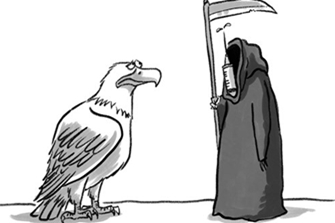
Ding Gang: High tolerance leads to fentanyl abuse in US
The US and China decided to control the opioid fentanyl in an agreement reached in Argentina couple of days ago. President Xi Jinping has agreed to designate fentanyl as a controlled substance "in a wonderful humanitarian gesture," meaning that people smuggling it into the US will be subject to "China's maximum penalty under the law."
2018-12-13 -
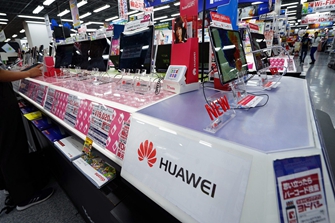
Guan Zhaoyu: Japan shouldn't say no to Huawei
On Monday, Japan decided to exclude Chinese telecoms giants Huawei Technologies and ZTE from the government procurement list. Since the Donald Trump administration signed the National Defense Authorization Act in August this year banning the U.S. government and contractors from using Huawei technology, there had been rumors that Japan would follow suit.
2018-12-13 -
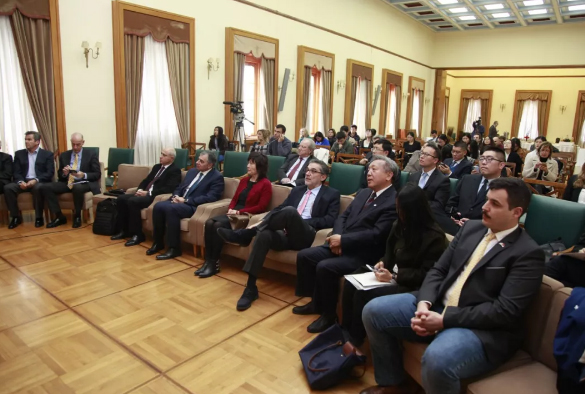
China, Greece voice confidence in prospects of cooperation under B&R Initiative
Greek businessmen and Chinese scholars voiced confidence in the prospects of Sino-Greek cooperation in the context of the Belt and Road Initiative during a forum held on Monday at Piraeus port, Greece's largest harbor which in recent years has become a strong symbol of win-win bilateral cooperation between the two countries.
2018-12-12 -
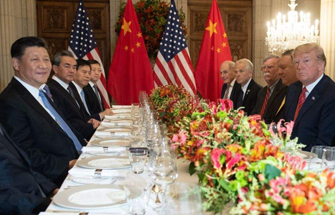
Wang Wen: China’s contribution to G20 Buenos Aires Summit
It is undeniable that China has made great achievements and contribution to the 2019 G20 leader’s summit in Buenos Aires, Argentina. The most important one is the successful meeting between the Chinese and US leaders, which has attracted much attention, and the two sides reached a consensus to stop imposing new tariffs. It shows that the decision makers of the two countries are solving this problem in a rational and objective way.
2018-12-12 -
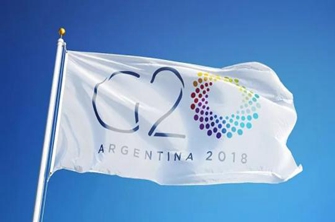
Jia Jinjing: Working together so everyone wins
From November 30 to December 1, the 13th summit of the Group of 20 (G20) was held in Buenos Aires, capital of Argentina. The event took place at a crucial moment for the G20 nations to steer the world economy and improve global governance. In his speech at the first session of the summit, Chinese President Xi Jinping noted that “over the past decade, we have braced difficulties together, navigated the global economy out of recession and brought it back to the track of recovery and growth. Ten years later, let us work with the same courage and strategic vision and ensure that the global economy grows on the right track.”
2018-12-10 -
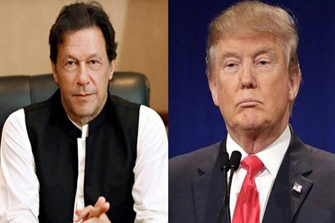
Zhou Rong: Trump U-turn on Pakistan reflects failure of US Afghanistan policy
A letter from US President Donald Trump to Pakistan Prime Minister Imran Khan sent shock waves around the world. First Trump expressed irritation with Pakistan on Twitter. Then a few days later, he spared no efforts in praising Islamabad's role in regional security. What brought about this U-turn in attitude?
2018-12-07 -
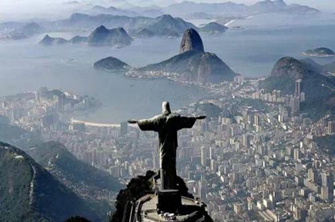
Ding Gang: Lessons of Brazil not applicable to China
The New York Times has recently been bringing out a series of articles about China. The latest commentary by Bret Stephens has a striking headline - "The Real China Challenge: Managing Its Decline." This seemingly analytical article uses Brazil as a comparison to China, which exposes the writer's shocking ignorance about Chinese people's culture.
2018-12-06 -
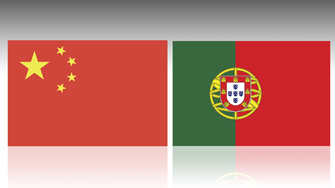
New Age of Sail for Portugal: BRI and Sino-Portuguese cooperation
The 40th anniversary of the establishment of China-Portugal diplomatic relations next year will be an important moment for further and broader cooperation between the two countries.
2018-12-05 -

Wang Peng: Climate change and the G20
Climate change has become a common challenge for mankind. G20 member countries, who account for more than 85 percent of global GDP and 75 percent of greenhouse gas emissions, have the responsibility to make a greater contribution on this issue.
2018-12-04 -
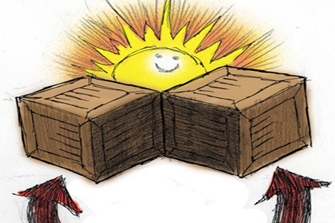
Zhao Minghao: China-US trade truce set to benefit world
Chinese President Xi Jinping and his US counterpart Donald Trump's meeting in Argentina on Saturday yielded results that boosted the confidence of both countries and the world. The US agreed to hold off on raising tariffs on $200 billion of Chinese goods to 25 percent and the two countries decided to start a new round of negotiations in the next three months. The meeting has prevented bilateral relations from going into a nosedive, showing how rewarding diplomacy between heads of state can be.
2018-12-04 -
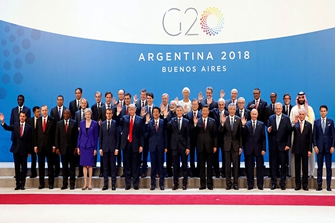
Xi's G20 speech sheds new lights on future global governance
Perhaps all eyes are looking at the 13th summit of the Group of 20 (G20) in Buenos Aires, where world economies are discussing the future of the global development, not to mention there will also be a high-stakes meeting between Chinese President Xi Jinping and his U.S. counterpart Donald Trump, as well as the signing of the U.S.-Mexico-Canada Agreement (USMCA).
2018-12-03 -
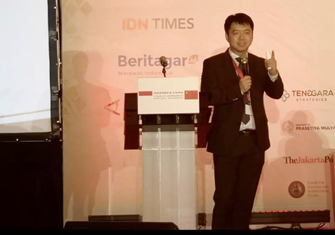
Wang Wen: Indonesia’s potential can be harnessed with China help
My arrival in Jakarta on November 26 was not smooth with two aborted landings and a diversion to Surabuya 600 kilometers away due to heavy rain. When the weather improved, I was flown back to the Indonesian capital. A friend joked, "You earned. One ticket, three flights." So there can be several ways of looking at something. The same is true of relations between China and Indonesia.
2018-11-30 -
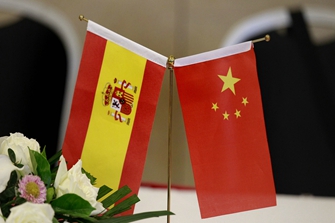
Wang Peng: When Confucius and Cervantes shake hands
Chinese President Xi Jinping arrived in Spain on Tuesday for a three-day state visit, which aims to hail ties between these two countries and maintain their “best period in history” as President Xi made the remarks during a meeting with Spanish King Felipe VI.
2018-11-29 -

Ding Gang: Trade war is about reshaping industrial chain
The trade war launched by the US has exposed China's weak link. It has lacked the advanced technology to help gain a firm foothold at the high-end of the global industrial chain, and more importantly it doesn't have the capacity to shape the chain.
2018-11-29 -
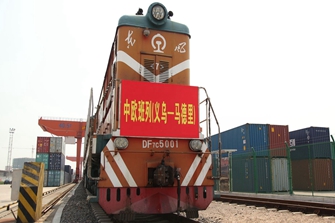
Guan Zhaoyu: What do achievements of Sino-Spanish trade ties mean?
This year marks the 45th anniversary of the establishment of diplomatic relations between China and Spain.
In the past 45 years, the two countries have worked together to promote practical cooperation in politics, economy, culture and people-to-people exchanges.2018-11-28 -
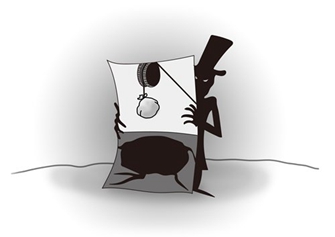
Wang Yiwei: Debt trap label hides anxieties of developed nations
The "debt trap" allegation against China was raised again recently. When delivering a speech at the APEC Economic Leaders' Meeting in Port Moresby, Papua New Guinea, US Vice President Mike Pence claimed that China's assistance to Pacific Island countries has caused debt burdens for the recipients.
2018-11-28 -

Liu Zongyi: Maldives has to walk China-India tightrope
Ibrahim Mohamed Solih was sworn in president of the Maldives on November 17 with Indian Prime Minister Narendra Modi being the highest-ranking foreign leader present. For India, Solih's win is a good opportunity to revive damaged relations with the Maldives. But some Indian media outlets were upbeat that Modi's attendance signaled India had regained influence over the archipelago nation.
2018-11-26 -

Wang Peng: Unilateralism and Protectionism are wearing-and-tearing the APEC platform
It is a pity that the Asia-Pacific Economic Cooperation (APEC) 2018 in Papua New Guinea (PNG) ended without a formal joint statement for the first time since its birth in 1989 and the “Leaders’ Meeting” upgraded in 1993.
2018-11-23 -

Ding Gang: China focuses on the end, West on means
The New York Times recently published a series of articles on the rise of China starting with "The Land That Failed to Fail." The idea behind these pieces is not complicated. They seek to convey that China's development is beyond the expectations of the West, but it does not believe the development model will last. Therefore, they have taken a wait-and-watch attitude, and are sure to see China reverse course after reaching a certain point. According to their political logic, this day will undoub
2018-11-23 -
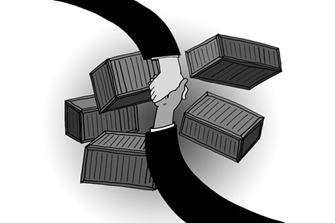
Wang Yiwei: China-EU cooperation can safeguard WTO rules
The China-US relationship has drawn increasing attention from the international community. Some observers claim that amid what looks like a prolonged trade war, China and the US will compete to rally support.
2018-11-20
























































































 京公网安备 11010802037854号
京公网安备 11010802037854号





